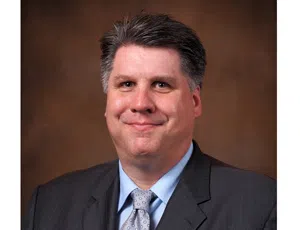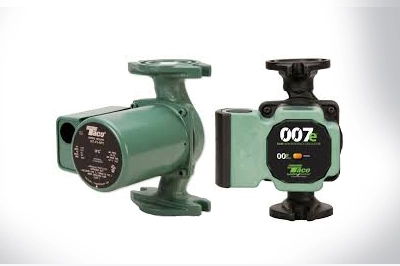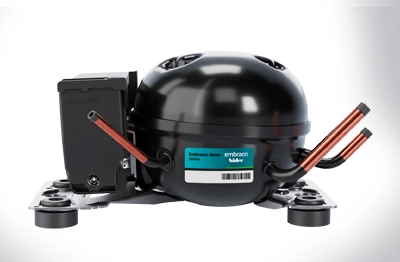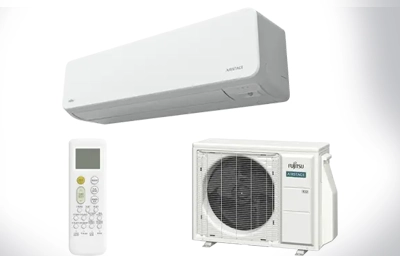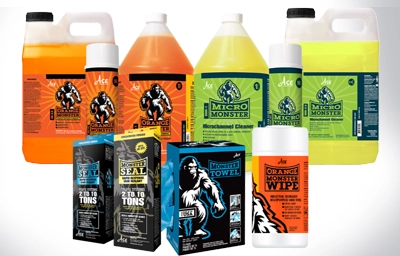Dan Foley, president of Foley Mechanical in Lorton, Va., is a firm believer that the early bird gets the worm, especially in the mechanical contracting business.
“I typically get to the office by 5:45 every morning,” Foley says. “That leaves me time to skirt the D.C. metro traffic, and even more importantly it gives me enough prep time so I can have my guys out the door and heading to service calls as soon as they arrive.”
Encouraged by an uptick in activity across the D.C. Metro/Northern Va. region, Foley is enthusiastic about being involved in nearly every aspect of his business these days.
“Once the guys leave, I have office time to get through emails, do some billing, write up proposals, and plan the rest of my day,” he says. “Then in the afternoon I’m almost always heading out of the office again — at architect meetings, helping with service calls, and either identifying new projects or managing the ones we have in play.”
A 29-year veteran of the industry, Foley cut his teeth in HVACR at Arlington Heating, where he worked for 15 years prior to venturing out on his own.
“Starting a business is never easy, but I was grateful for the smooth transition into business ownership, thanks to the strong network of architects, builders, suppliers and other industry contacts I had made over the years,” he explains. “Today, Foley Mechanical is 19 people strong, and I’m really proud of what we’ve been able to accomplish.”
Foley’s experience has made him very clear on the formula for success as a mechanical contracting firm, particularly in recognizing need for an undoubtedly strong work ethic.
“Good, reliable people are key, and in all honesty, they’re getting harder and harder to find these days,” Foley says. “Building off of a solid foundation of good people, it’s important that you stay plugged into the industry, and you know what’s going on at all times. The game has changed several times since I’ve been in the business, and I expect it to do so a lot more before I’m through. You need to know who you can rely on, what’s driving the trends, and how to best do the actual day-to-day work — all at the same time.”
Finding Good People
Foley is not shy about sharing the level of reliance he places on the entire Foley Mechanical staff.
“Wendy is our office manager by title only,” Foley says, “In reality we all know what’s up when it comes to how she keeps everything moving, and really helps the company stay on track for success.”
Beyond day-to-day business management activities, Foley recognizes the importance of those in the company working directly in the field.
“I’ve been blessed with great employees, many of whom have been with me 10 years or more,” he says. “But it’s difficult to find them, and when you do find them, they’re worth their weight in gold.”
According to Foley, it’s important for the industry at-large to further cultivate enthusiasm among the next generation of mechanical contractors and engineers.
“We’re not seeing the new kids in town like we used to — young folks seem to be really interested in computers and video games and iPhone apps. Maneuvering through a dark crawl space, hot attic or blustery rooftop is not exactly the most comfortable kind of job.
“As a whole, HVACR industry leaders — as well as everyday guys like myself — need to find a way to make a connection with the younger generation between what they like to do and why mechanical systems are a crucial part of that. Social media photos aren’t saved in a magical realm – they’re housed on big servers generating tons of heat that can only be managed by HVACR equipment. Perfectly climate controlled homes and schools and public spaces are the result of careful planning, expert installation and well-managed functioning of HVACR equipment. It’s actually cool when you think about it that way. And we need the next generation to start doing that.”
And, Foley adds, it’s not at all a bad industry for the wallet or pocketbook.
“I’m proud to say that my top guys are making six figures, and they deserve that kind of compensation,” he says. “HVACR is a field in which there’s always going to be demand for good people — and there’s always going to be work that pays them and the rest of the bills. You can’t just put warm bodies on these jobs — people have to be skilled, efficient and intelligent to work in this trade. You’re doing the actual labor, but you’re also managing the jobsite, and sometimes other trades. It’s important work, and work from which you can get a great deal of satisfaction.”
Networking, Networking, Networking
When it comes to ensuring his business’s success and longevity, Foley knows it’s important to foster and maintain solid relationships across the industry.
“You really need to make the investment — including time, which is also money to us all in this business — into forging strong relationships,” he shares. “A lot of people felt the hit of the construction downturn, and it times like that, the relationships you have become even more important. Having good, solid contacts is also important when you run into an issue at the equipment level — you want your suppliers to know you’re willing to understand and work with them to make things better.”
Foley offers one such example, in which face-to-face interaction became key to solving an equipment failure issue.
“It’s important to be able to actually sit across from someone and talk an issue out in person, and that comes with investing in the relationship,” Foley says. “I make it a point to be at the big industry events such as the AHR Expo, so I can actually see the people that I deal with over the phone from thousands of miles away for the majority of the year.
“This proved crucial in addressing an issue we had with more than 300 of a manufacturer’s units failing on a project — we really needed the rep, the wholesaler and an engineer from the manufacturer all sitting around the table together to come to a resolution. AHR Expo was the place where we knew we’d be able to do that, and we were successful in solving the problem, and all walking away feeling acknowledged and treated fairly.”
Networking and investing in relationships with contacts also comes in handy, according to Foley, when in a logistical pinch.
“I’ve got a job going right now where I needed a pipe order for it pretty quickly,” he says. “When I found out I couldn’t get it for another six weeks, I called around to some people I know in the industry that I thought might be able to help out. They know I understand why delivery times are normally what they are, and in this instance they knew I was also in a bind. For that reason, and based on our good history together, they’re willing to go the extra mile to help me get the pipe in two weeks.”
Looking Ahead
Sometimes, envisioning what lies ahead requires looking back on the past.
“A third of our business is large custom homes, and during the economic downturn we just didn’t see that kind of work coming,” Foley shares. “Even as the market has started to pick back up, these are typically one and a half to two-year projects. This is where it’s about a careful balancing act between staying ready for the market to return, and keeping other business coming through the door that can pay your people and the bills. Fortunately we’re a diversified company, and we’ve been successful in keeping the pipeline going with replacements, service work and remodeling jobs.
“I saw some of my contractor friends that went from 20 employees to five,” Foley continues. “We’re really lucky to have been able to weather the storm, especially thanks to doing business in a climate where both heating and cooling are a must. You’re not going to say ‘I didn’t get the hours this week so I can’t fix the boiler’ — heating is a must. Likewise, we have sweltering summers here, and with high humidity, air conditioning isn’t just a ‘nice to have’ like it is in, for example, the Northeast.”
According to Foley, he has a two-pronged approach as he looks toward the future.
“Staying a diversified company is important, even as the market is returning and we’re seeing those big custom home projects coming through again,” he says. “I’m also continuing to invest in staying on top of new trends, and keeping myself and my staff in the know on the new equipment and the best ways of doing our day-to-day jobs.”

